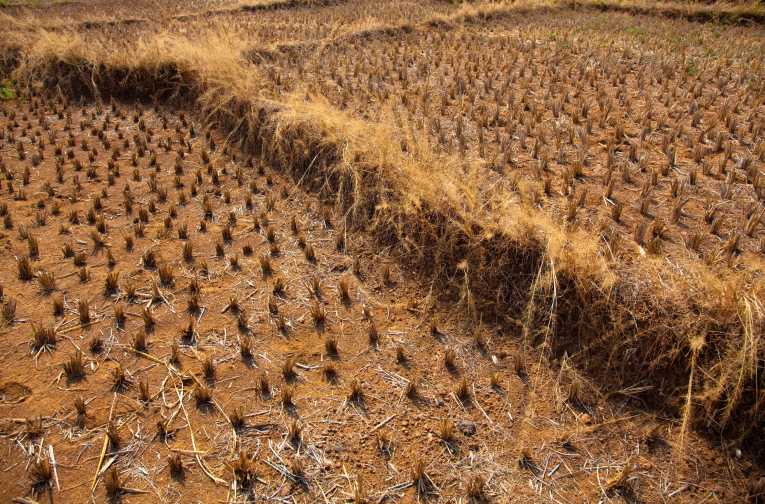Slow-onset climate change could have 'potentially catastrophic' long-term impact on food production in the developed world
There are fresh worries about long-term food production in the developed world with the news that the Food and Agriculture Organisation of the United Nations (FAO) has warned of the ''potentially catastrophic'' future impacts brought about by slow-onset climate change.
The warning was made in a submission by FAO to the United Nations Framework Convention on Climate Change. FAO Assistant-Director General for Natural Resources, Alexander Muller, stated that the world needed to change its emphasis from responding to shorter-term climate impacts largely caused by extreme weather events to a more long-term management of the risks posed by climate change.
Muller added that while such short-term measures were ''absolutely necessary'', if action was not taken to prepare for the anticipated impacts on the ecosystem services needed for agriculture from slow-onset climate changes, there could be ''disastrous'' consequences for food security during the second half of the 21st century.
Are governments paying attention to the risks of slow-onset climate change?
The news brings a timely reminder that food security risks are amongst the various risks associated with slow-onset climate change, each of which need more attention paid to them.
Governments need to devote more time and money to these risks in the process of global adaptation to climate change so that agriculture in the developing world is more resilient.
Slow-onset climate change may take place gradually, but it is these changes that bring deeper challenges to the ecosystem services requiredfor food production. It makes little sense to deal with such long-term changes once the damage has been done; they simply must be prepared for now.
So what can be done?
Food production systems and the ecosystems on which they are dependent are highly sensitive to changes in climate, with changes in precipitation and temperature, as well as related disease and pest outbreaks, all potentially reducing production.
FAO has suggested such measures as developing staple food varieties that are better adapted to anticipated future climatic conditions, as well as breeding climate-adapted crops and screening plant genetic material stored in gene banks whilst bearing in mind future requirements.
One of the unfortunate things, of course, is that even climate change mitigation efforts can actually have negative consequences for food security. It is for this reason that as there is an increase in the level of demand for fuel, food and carbon storage, trade-offs will need to be managed between competing uses of land.










